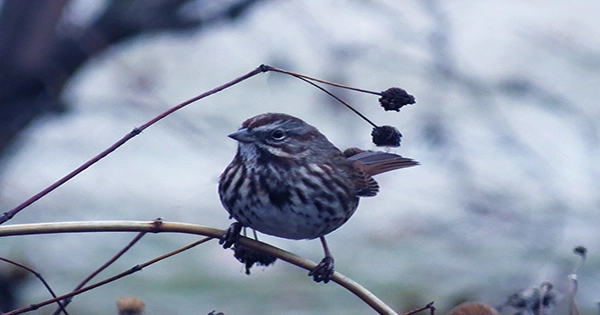Animals’ first response to changing environmental conditions is often the development of new behavioral features. As cities become more wildlife habitats, researchers have researched behavioral changes in birds and how urbanization affects parental care behavior in male song sparrows. The researchers discovered that male song sparrows visited nests more frequently in cities, where they are known to be more aggressive than in rural areas where rural conspecifics visited countryside nests. Frontiers in Ecology and Evolution published the findings.
Animals’ habits change as they move to new surroundings or when their natural habitats are rapidly altered by human intervention. Increased aggression, born of the desire to defend territories, is one such behavioral shift that has been documented in various bird species that have settled in cities.
“It is thought that aggressive male songbirds in temperate zones reduce parental care.” “However, in this study, we show that urban male song sparrows provided more care for their young,” said Dr. Samuel Lane, a postdoctoral research fellow at North Dakota State University and the study’s primary author. “Against our expectations, we found that they visited nests more frequently and were more successful parents than rural males.”
Super songbirds
Many songbird species have easily acclimated to urban areas, but they encounter problems not found in their native habitats. Animals can adapt to these changes by balancing their behavior in order to better manage their energy and time resources.
If urban male songbirds spend more time guarding their territory, it implies that they have less time to devote to their offspring’s care. As a result, the researchers predicted that more aggressive urban male sparrows would sacrifice parental care for territorial aggression, which would have a negative influence on their young’s survival. Over four mating seasons, they analyzed six sites in southwest Virginia characterized by recent urban growth to put their theory to the test.
Lane and colleagues discovered that urban males visited their nests much more frequently than their rural counterparts. They had also started feeding the nestlings earlier in the day. “It turns out that urban males are super males—able to defend their territories and care for their young,” Lane explained.
Born and raised in the city
Despite various limitations, the researchers discovered that hatching and fledging success was much higher in urban environments. Brood parasitism, for example, is a behavioral pattern in which certain bird species, such as the brown-headed cowbird, deposit their eggs in the nests of other birds. This behavior can have a deleterious impact on the development and survival of a nest’s offspring. On the plus side, nest predation rates in the city were much lower, contributing to overall higher nesting success.
“It is frequently assumed that urban areas are more difficult for wild animals,” Lane added. “Our findings add to the growing body of evidence that certain species of songbirds benefit from living in cities when there is enough green space for them to find food and nesting sites.” The experts hope that further research in this area may help them build better urban environments for wildlife.
These findings, however, should not be extrapolated to other regions or species or animals. The researchers noted that investigating more densely populated areas or species that deal poorly with urbanization could have resulted in different results.
















